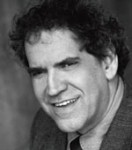By Rabbi Michael Leo Samuel

CHULA VISTA, California — The recent attack upon the Sikh Temple in Wisconsin dredged up some old memories I thought I had buried.
My story began not long after 2001. At that time, I was a rabbi in Glens Falls, New York, when the incident occurred. After the terrible 9/11 massacre, xenophobic tensions reached a crescendo. Anyone who had a Middle Eastern appearance was viewed with suspicion and fear. Some folks wanted to lash out anyway they could against the newcomers. After 9/11, even Israelis were held in custody for possible involvement in the greatest terrorist attack upon our nation’s soil.
It was a time of madness and sadness.
At a small gas station in Lake George, three young people went into the store, robbed the owner and killed him—he was a Sikh.
When the police caught the three young people, we discovered that one of the participants happened to be the son of one of my best congregants. When I saw the young man, I discovered he was beaten with a belt and had welts all over his back.
The judge threw the book at all three of the young men. They were condemned to prison for at least 40 years. Two of the young men died while they were in prison. The Jewish participant’s father fought to get the young man released—and eventually, the decision was overturned about four years later. Why? Because the police physically forced the young man to confess.
When the assassin attacked the Sikh Temple this past week, it awakened inside me this old memory. Was the incident in Lake George a “hate crime” by the modern definition? Or was it just your garden variety robbery? It was probably a bit of both.
In hard times, people often direct their animus upon a scapegoat. As Jews, we know this all too well. The scapegoat serves as a medium through which we channel our collective rage. In Jungian terms, we project unto the Other what we don’t like about ourselves. We unconsciously or subconsciously project our shadow (our anti-social nature) unto others because we imagine that the Other is different from us.
The practice of Scapegoating in biblical times functioned as a as a symbol of casting out sin; but this process has not been left behind in the annals of ancient history. As a psychological process–it is very much alive. We may have evolved as a society and no longer have the rituals of the scapegoat, but its atavistic aspect remains hidden within our psyches waiting to explode–especially in dangerous and chaotic times such as ours. Rather than carrying out acknowledged rituals among and for the public, we have begun subconsciously attaching our shadows to those we then hold far from us, thus cleansing ourselves of the sin. Every generation creates its own scapegoats; in the past, the Jew, the Christian, the Native American Indian has often absorbed the sinfulness of Western culture. Today, it is Sikh or the Muslim, or anyone whose belief system is different from our own. Of course, in Muslim countries–the Jew continues to be the classic scapegoat in their society. In Egypt or Syria, or Gaza or Tehran, television shows on the Jewish blood libel still remain popular prime time television events that draw thousands of observers.
Jewish, Christian, Muslim Interfaith groups may also want to start including other religious movements, e.g., Native American, Buddhist, Hindu, Shinto, and Sikh in their interfaith discussions. The more we teach people how to understand our neighbor’s faith, the more successful we will be in promoting communal harmony.
There is a passage from Shakespeare’s Merchant of Venice (Act III:1) that is most memorable and touches upon this theme:
• If you prick us do we not bleed? If you tickle us do we not laugh? If you poison us do we not die? And if you wrong us, shall we not revenge?
 Yes, we all have the same humanity. Once we recognize that, we will have taken one gigantic step in the evolution of our species. Our survival depends upon it.
Yes, we all have the same humanity. Once we recognize that, we will have taken one gigantic step in the evolution of our species. Our survival depends upon it.
*
Rabbi Samuel is spiritual leader of Temple Beth Shalom in Chula Vista. He may be contacted at michael.samuel@sdjewishworld.com